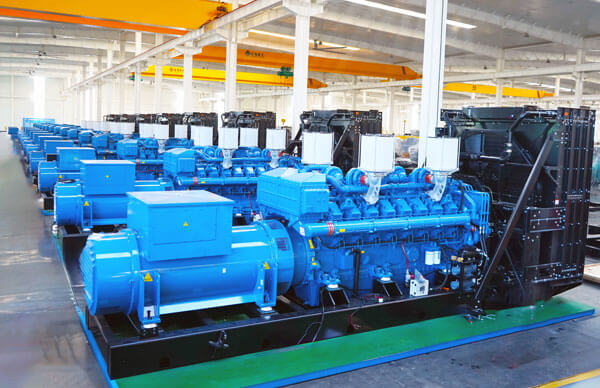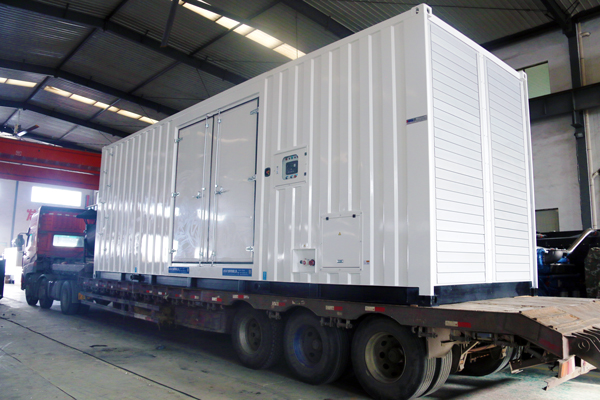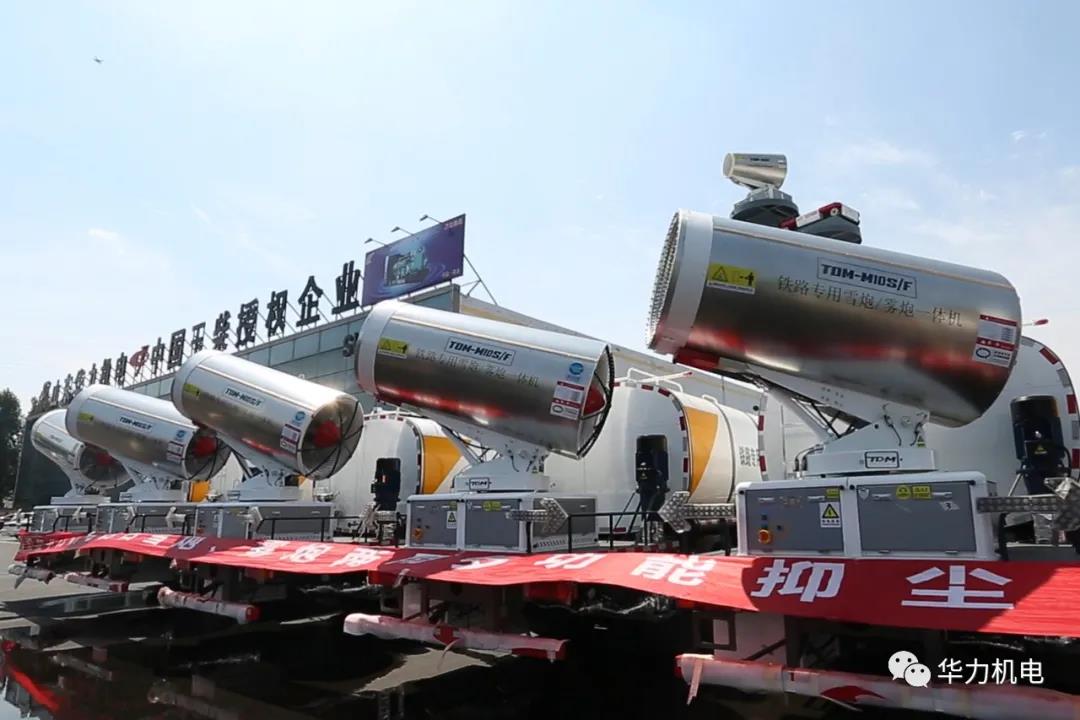Why Do Diesel Generators Fail to Start? Ten Critical Causes & Solutions
Why Do Diesel Generators Fail to Start? Ten Critical Causes & Solutions
Mar 20, 2025
Why Do Diesel Generators Fail to Start? Ten Critical Causes & Solutions
1. Fuel System Issues
Causes:
Contaminated or Degraded Fuel: Water, algae, or sediment in diesel fuel can clog filters, injectors, and fuel lines, disrupting combustion.
Air in the Fuel System: Air bubbles in fuel lines or injectors prevent proper fuel delivery.
Low Fuel Levels or Blocked Filters: Insufficient fuel or clogged filters starve the engine of fuel.
Solutions:
Use high-quality, water-separated diesel and replace fuel every 6–12 months.
Bleed air from the fuel system using manual pumps and tighten loose connections.
Clean or replace fuel filters every 500 operating hours.
2. Battery and Electrical Failures
Causes:
Weak or Dead Batteries: Low voltage (<10V for 12V systems) fails to power the starter motor.
Corroded Terminals or Faulty Wiring: Poor electrical connections disrupt starter circuits.
Failed Relays or Solenoids: Malfunctioning components in the control panel prevent engine cranking.
Solutions:
Test battery voltage monthly; recharge or replace if below 12.4V.
Clean terminals with a baking soda solution and inspect wiring for damage.
Replace faulty relays, solenoids, or fuses in the control panel.
3. Starter Motor and Mechanical Faults
Causes:
Worn Starter Motor Brushes: Poor contact with the commutator halts cranking.
Flywheel Misalignment: The starter motor gear fails to engage the flywheel.
Engine Seizure: Lack of lubrication or overheating causes piston/cylinder damage.
Solutions:
Replace carbon brushes and clean the commutator surface.
Adjust the starter motor alignment or replace damaged gears.
Ensure regular oil changes (every 250 hours) to prevent mechanical wear.

Causes:
Worn Piston Rings or Cylinder Liners: Reduces compression pressure below ignition thresholds.
Leaking Valves or Gaskets: Faulty seals allow air to escape the combustion chamber.
Solutions:
Perform a compression test; rebuild the engine if pressure drops >15%.
Adjust valve clearances or replace damaged valve seats.
5. Control System Errors
Causes:
Sensor Malfunctions: Faulty coolant temperature or oil pressure sensors trigger safety shutdowns.
Incorrect Control Panel Settings: The generator may be in "OFF" mode or locked due to prior alarms.
Solutions:
Calibrate or replace sensors causing false alarms.
Reset the control panel and ensure it’s set to "AUTO" mode.
6. Air Intake and Exhaust Blockages
Causes:
Clogged Air Filters: Restrict airflow, creating a rich fuel mixture.
Exhaust Backpressure: Blocked mufflers or DPFs prevent exhaust gas expulsion.
Solutions:
Replace air filters every 250–500 hours.
Inspect and clean the exhaust system, including turbochargers.
7. Low-Temperature Challenges
Causes:
Thickened Diesel Fuel: Cold weather increases viscosity, hampering fuel flow.
Faulty Glow Plugs: Fail to preheat the combustion chamber for ignition.
Solutions:
Use winter-grade diesel (e.g., No. 0 or Arctic blends) below 0°C.
Test glow plug resistance (0.1–6Ω) and replace faulty units.
8. Lubrication and Cooling Failures
Causes:
Low Oil Levels or Degraded Oil: Triggers safety shutdowns to prevent engine damage.
Coolant Leaks or Low Levels: Overheating locks the engine.
Solutions:
Maintain oil levels between "MIN" and "MAX" marks; replace oil annually.
Top up coolant mixtures (50% antifreeze) and repair leaks.
9. Operational Mistakes
Causes:
Incorrect Starting Procedure: Skipping preheating in cold conditions or rapid consecutive starts.
Fuel Valve Closed: Overlooked during maintenance checks.
Solutions:
Follow manufacturer guidelines: Preheat for 3–5 minutes in cold weather.
Verify all valves and switches are in the correct position before starting.
10. Hidden Electrical Gremlins
Causes:
Faulty ECU or Wiring Harnesses: Modern generators rely on electronic control units (ECUs) for timing and fuel injection. Corrosion or software glitches can disrupt signals .
Solutions:
Update ECU firmware and inspect wiring for damage or corrosion.
Preventive Maintenance Checklist
Weekly: Check fuel/oil/coolant levels; inspect for leaks.
Monthly: Test batteries, clean air filters, and run no-load tests.
Annually: Replace filters, coolant, and oil; perform load bank testing.
FAQ
Q: Why does my diesel generator crank but not start?
A: Likely due to fuel starvation (clogged filters, air in lines) or low compression.
Q: How to start a diesel generator in freezing temperatures?
A: Use winter diesel, preheat with glow plugs, and avoid ether-based starters.
Q: Can bad injectors cause a no-start condition?
A: Yes. Faulty injectors disrupt fuel atomization, preventing combustion.
Final Tips
Regular maintenance prevents 80% of startup failures. Bookmark this guide or contact Shandong Huali Electromechanical Co., Ltd..
News Center
Hot Product
Hot News







